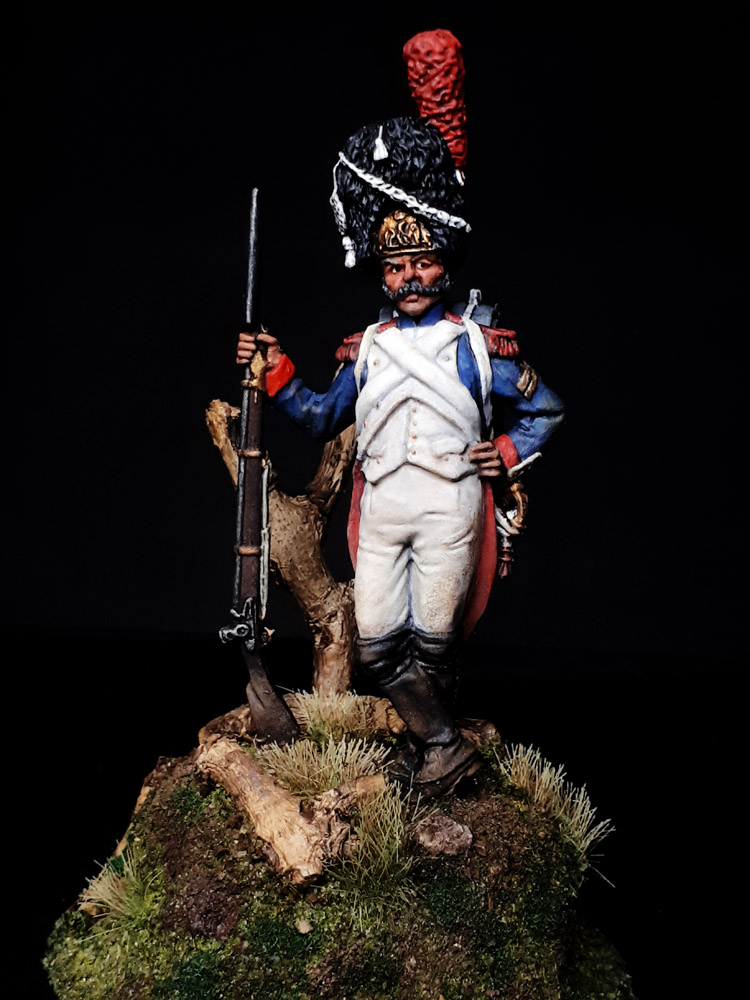
The Imperial Guard was originally a small group of elite soldiers of the French Army under the direct command of Napoleon I, but grew considerably over time. It acted as his bodyguard and elite tactical reserve.
The Guard originated as the ‘Consular Guard’, created November 28, 1799. This was originally formed for the security of the executive and legislative branches of the French Republic and had a small number of soldiers, roughly a thousand.
The ‘Consular Guard’ changed its name to the ‘Imperial Guard’ on May 18, 1804. At that time the Guard numbered around 8,000 men. By the time of Napoleon’s invasion of Russia in 1812, it had swelled to just under 100,000 men.
The Guard was made up of 3 groups. The ‘Old Guard’ comprised some of the finest soldiers in Europe, who had served Napoleon since his earliest campaigns. The ‘Middle Guard’ was composed of his veterans from the 1805 to 1809 campaigns. The ‘Young Guard’ consisted of the best of the annual intake of conscripts and volunteers, and was never considered to be of quite the same caliber of the senior Guards, although its units were still superior to the normal line regiments.
Other French soldiers even referred to Napoleon’s Imperial Guard as “the Immortals”. They received better pay, rations, quarters, and equipment, and all guards ranked one grade higher than all non-Imperial Guard soldiers.
Napoleon took great care of his Guard, particularly the Old Guard and he was careful of its use in battle. The Grenadiers of the Old Guard were known to complain in the presence of the Emperor, giving them the nickname ‘the Grumblers’.
The Imperial Guard earned a fearsome reputation through the many military engagements of the Napoleonic Wars. The Guard played a major part in the climax of the Battle of Waterloo. It was thrown into the battle at the last minute to try to salvage a victory for Napoleon.
Vastly outnumbered, it faced terrible fire from the British lines, and began to retreat. For the first (and only) time in its history the Middle Guard retreated without orders. At the sight of this, Napoleon’s army lost all hope of victory.
The Middle Guard broke completely but the Old Guard (and some of the Young Guard) battalions held their formation and secured the retreat for the remainder of the French Army .
During their last stand at the Battle of Waterloo. The retort to a request to surrender was reported to have been “La Garde meurt, elle ne se rend pas!” – “The Guard dies, it does not surrender!”, before being almost annihilated by British and Prussian artillery fire and cavalry charges.
Vive L’Empereur
